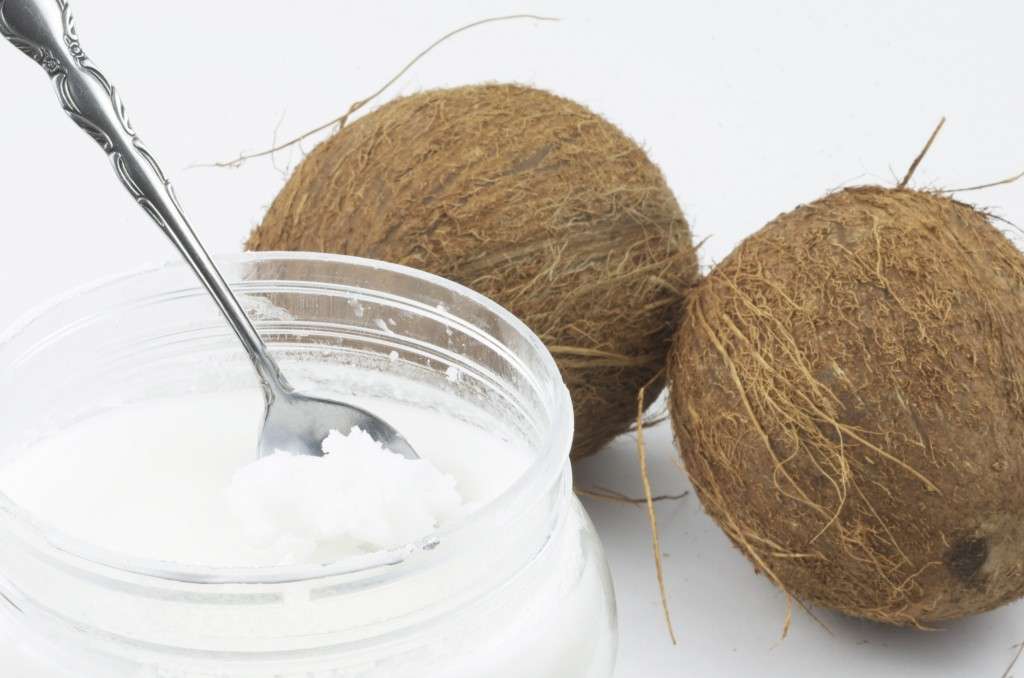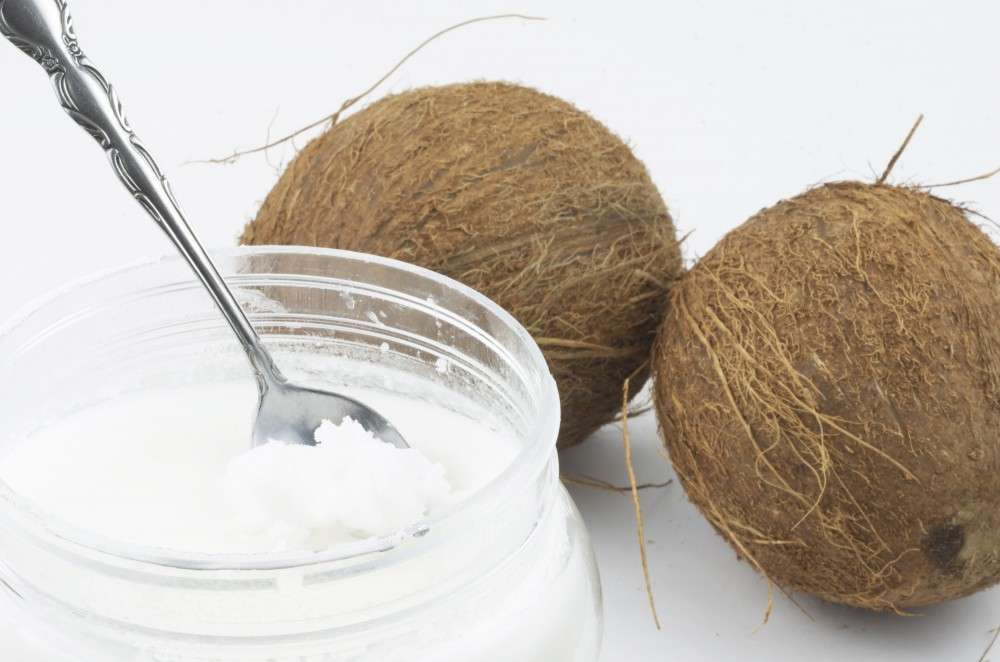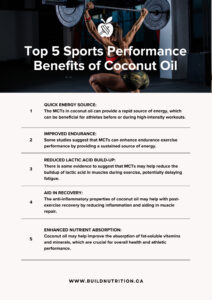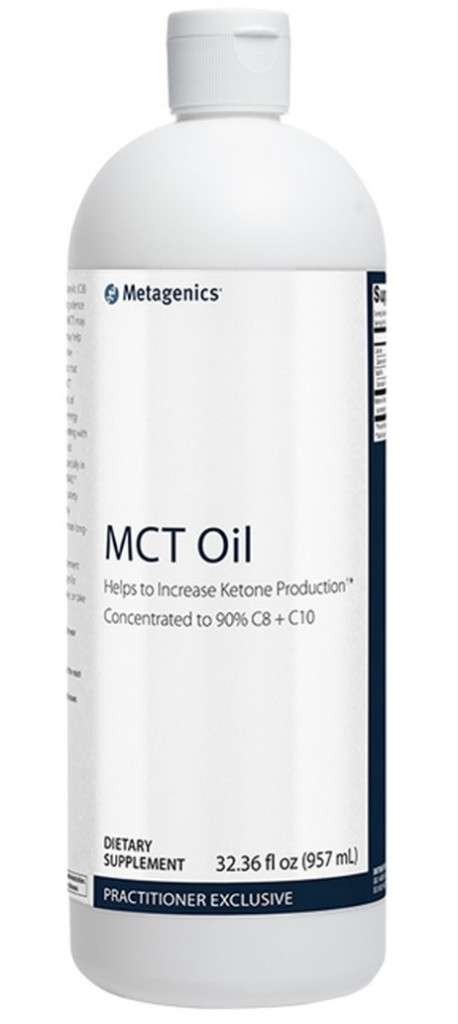December 7, 2019
What is MCT, and does it help with weight loss or sports performance?
MCT fats (medium chain triglycerides) are comprised of 4 different types of fats, main ones are caprylic and capric acid. 65% of coconut oil is MCT, also found in smaller amounts in palm oil and dairy.

While many people confuse MCT oil with coconut oil, they are not the same. Coconut oil is a whole food with a variety of saturated fats, including a combination of MCTs and LCTs, so it is solid at room temperature.
But pure MCT oil doesn’t occur naturally in any food. Pure MCT oil is hydrolyzed from the coconut or palm oil, then fractionated, esterified and deodorized to create a colorless, flavorless and odorless semi-synthetic liquid devoid of any long-chain triglycerides, or LCTs.
What makes MCTs unique is that they bypass the route that other fats are broken down in the body, and this can lead to a number of reported effects/benefits in the body. Research is plenty, but conflicting on the benefits of using MCT for weight loss, sports performance or other health or athletic improvements. Here’s what we’ve learned to date:
WEIGHT LOSS:
Evidence regarding appetite and satiety is mixed.
Some studies show MCT oil has been helpful in increasing the release of two hormones that promote the feeling of fullness in the body: peptide and leptin. One study found that people taking two tablespoons of MCT oil as part of their breakfast ended up eating less food for lunch compared to those taking coconut oil. However, other studies showed the opposite effect – an increase in the hormones that make us hungry. More research is needed.
It would appear this is dependent on any number of other individual factors. Therefore it’s suggested to try it yourself and see how your body responds.
MCT oil has about 10% fewer calories than long-chain triglycerides (LCTs), which are found in foods such as olive oil, nuts and avocados. But like all things holistic, remember to include a broad spectrum of healthy fats in your diet, as they have different – and important – functions in the body.
KETONES:
MCTs can be converted into ketones, which are produced from the breakdown of fat when carb intake is low. If you’re following a ketogenic diet, MCTs cal be converted into ketones in the liver. These ketones can pass through the blood-brain barrier, making them a convenient source of energy for your brain.
INSULIN SENSITIVITY:
MCTs appear to improve insulin sensitivity in people with type 2 diabetes, particularly for obese patients.
“A 90 day randomized controlled trial using 18 grams of MCTs, relative to 18 grams of corn oil, in type 2 diabetics reported a 17% improvement in insulin sensitivity as assessed by HOMA-IR, while the control group experienced a worsening of sensitivIty (7%); the difference between groups was significant. However, the MCT oil group also lost a significant amount of bodyweight that correlated with improvements in insulin sensitivity”.
Ingestion of medium-chain triglycerides in obese persons (BMI above 30 and and 9.9g MCTs) paired with a hypocaloric diet (578.4kcal) has been associated with a higher blood ketone body (beta hydroxy-butyrate) level and reduced nitrogen excretion which have been thought to exert protein sparing effects; this study noted that for weight loss obtained over 2 weeks, that a greater percentage (56%) was from fat mass relative to long chain triglycerides (22%) or low fat control”
There appears to be a fat reducing effect of coconut oil and MCTs that exceeds other oils used, which is more readily apparent in obese persons than lean persons. This would suggest that obesity disrupts fat oxidizing and MCT improves this function.
ATHLETIC PERFORMANCE:
During exercise, rising lactate levels can negatively impact exercise performance. Interestingly, MCTs may help reduce lactate build-up. One study found that athletes who took 6 grams or about 1.5 teaspoons of MCTs with food before cycling had lower lactate levels and found it easier to exercise, compared to those taking LCTs (long chain fats).
“There is not a large amount of convincing evidence that calories from medium chain triglycerides and coconut oil are somehow better for performance than carbohydrates or long chain fatty acids, although the calories themselves may confer an ergogenic property.”
A quick look at some of the performance benefits various studies have suggested:
(click to download a free pdf of the above!)
ENERGY SOURCE:
Since MCTs easily enter your cells without being broken down, they can be used as an immediate source of energy.
Bile is produced by the liver, then passes to the gallbladder for storage and transport to the first part of the small intestine, the duodenum where it aids in the digestion of fats. But due to their shorter chain length, MCTs bypass this process and instead, travel straight from the gut to the liver and do not require bile. Therefore, they arrive to the cells of our bodies more quickly, delivering energy.
GUT HEALTH:
MCTs have been shown to have antimicrobial and antifungal effects. This helps fight yeast and bacterial growth in the gut lining, thereby supporting healthy gut flora. This has far-reaching implications in brain health, weight loss, immunity, and more.
DIGESTION:
In conditions where the digestion, absorption, or transport of dietary fat is disturbed (such as in people with biliary cirrhosis and pancreatic insufficiency), MCT supplementation can alleviate symptoms and help reduce malnutrition, due to their unique ability to bypass most all digestive and absorptive processes necessary for long-chain fats.
On the flip side, dietary intake of MCT oil can cause significant gastrointestinal distress for some people (diarrhea, vomiting, bloating and cramping). Most studies where people reported these symptoms were on very high-fat diets (90 percent of daily calories) or who took MCT oil on an empty stomach. Nonetheless, MCT oil is not appropriate for people with liver damage or with disease.
BUT…
High doses of MCT oil may increase the amount of fat in your liver in the long term.
Remember also to consume MCT oil as part of your total amount of fat intake, and not in addition to your other dietary fat intake.
In people with already elevated triglyceride and cholesterol levels, MCT oil appears to increase blood lipids further, especially compared to oils high in polyunsaturated fatty acids. However, even large doses of MCT oil appear to not have these effects on the blood lipids of people with type-2 diabetes.
Most studies have compared MCTs to highly polyunsaturated seed oils such as corn and soybean oils. Further research is necessary to determine the effects of MCTs compared to other dietary fats.
CONCLUSION:
Research is ongoing and not all benefits are considered “proven”, although many studies are promising and many individuals have personally experienced benefits while supplementing with MCT.
To introduce MCT in your diet, start with a small amount (1-2 tsp) with food once daily. Keep it at 1–2 tablespoons per day, and negative side effects are unlikely. And be sure to include it in your daily fat intake, rather than adding it on top of.
One last tip – don’t cook with MCT! Pure MCT is not a culinary oil, due to its low smoke point (only 284 degrees Fahrenheit). “Smoke point refers to the temperature at which an oil starts to burn and smoke. When you cook with oil that’s been heated past its smoke point, you do more than impart a burnt flavour to foods. Beneficial nutrients and phytochemicals found in many unrefined oils are destroyed when the oil is overheated. Overheating also creates harmful free radicals.”
Read more about what oils are safe to cook with here.
From our trusted online medical grade supplements dispensary.
Enjoy our 10% discount and shipping direct to your door!
Wanna chat more about using the power of different foods to boost your fitness or weight loss goals?
Get in touch today!
We love hearing from you 😁
Sources:
https://examine.com/supplements/mcts/
https://www.healthline.com/nutrition/mct-oil-benefits#section9
MCT Oil, Miracle or Myth?
The entire contents of this website are based upon the opinions of Build Holistic Nutrition. Please note that Build Nutrition is not a dietitian, physician, pharmacist or other licensed healthcare professional. The information on this website is NOT intended as medical advice, nor is it intended to replace the care of a qualified health care professional. This content is not intended to diagnose or treat any diseases. Always consult with your primary care physician or licensed healthcare provider for all diagnosis and treatment of any diseases or conditions, for medications or medical advice, as well as before changing your health care regimen.
© BUILD NUTRITION 2026. ALL RIGHTS RESERVED. PRIVACY POLICY
Go ahead, creep us on social. You know you want to!



